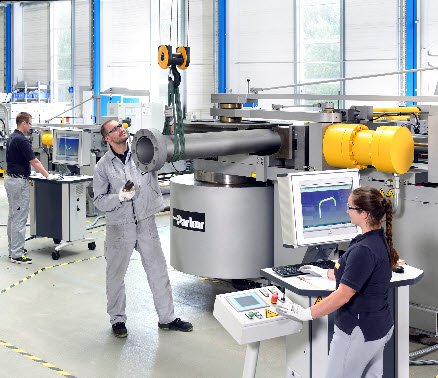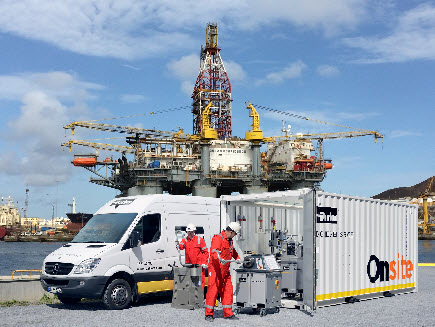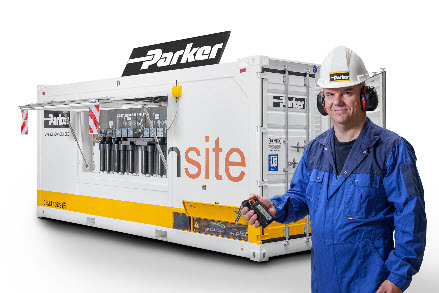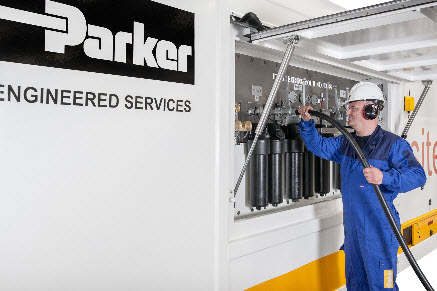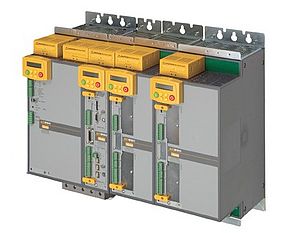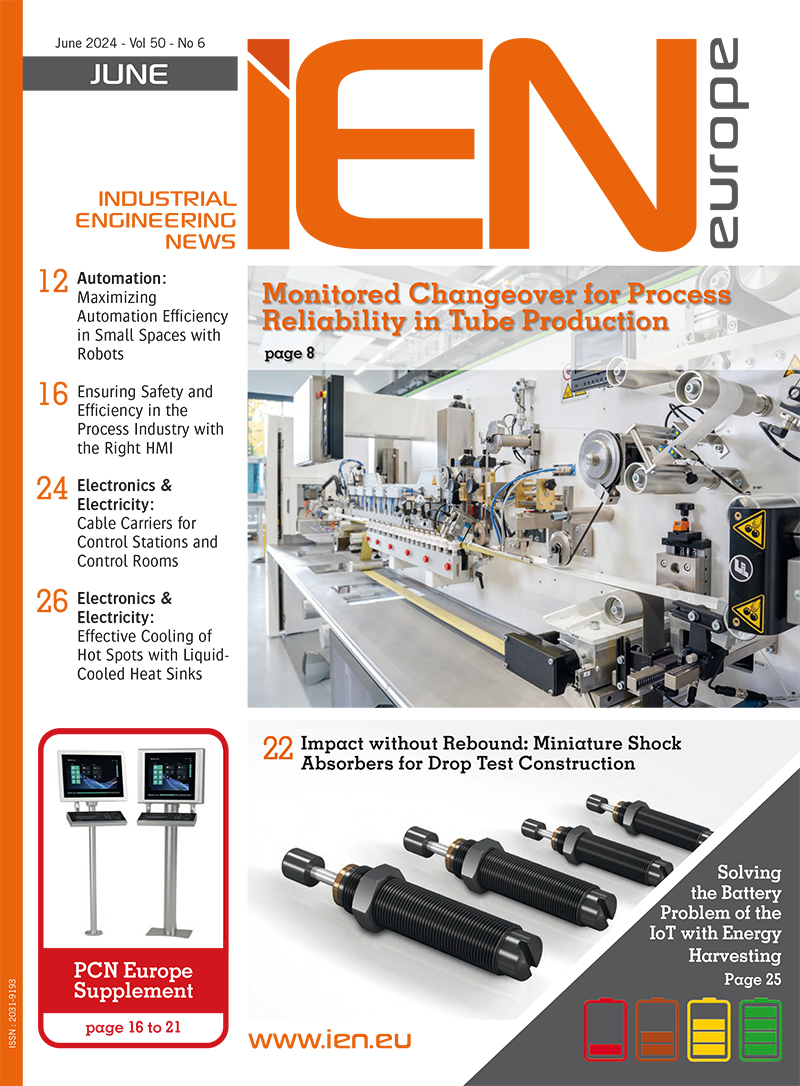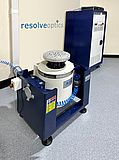Author: Tobias Hammer, Services Manager EMEA, Parker Hannifin
There are numerous issues associated with modern welded pipes, not least those concerning accuracy, reliability and cost. As a result, moving to a weld-free piping solution presents many potentially advantageous opportunities, particularly if it can be backed by on-site support to help optimise system performance and uptime.
There is an omnipresent demand for connecting hydraulic units with machines and equipment, both as part of new installations and in the overhauling of existing equipment. Although welded connections have been the traditional solution, there are a number of inherent problems with welded pipe joints that are driving demand for an alternative solution.
Among the main issues are those regarding the accuracy and reliability of connections; even experienced welders cannot always produce 100% perfect welds. Moreover, inherent problems with welded joints include the potential for stress cracking and subsequent corrosion, while ongoing weld integrity can only be proven with regular, expensive and time consuming x-ray testing or other non-destructive method. Add to this the current industry issues in sourcing specialist welders, and the challenges are plain to see.
Then there are the costs to consider. Not only does welding consume high levels of energy, but there exist numerous time and cost issues around cleaning, degreasing agents and anti-corrosion resources. Safety is another concern, particularly those relating to welding fumes and fire risks. Indeed, increased system pressure (especially in hydraulic systems) means there is growing industry focus on safety; a fact supported by a new European directive for pressure vessels. For these reasons, some industries, such as oil and gas, shipbuilding and mining, have already started specifying the use of weld-free technology.
Go weld-free
The increased pressure on operators to ensure machine and production efficiency means that system failures and unscheduled maintenance due to piping and connection faults is expensive; both in terms of emergency repairs and production downtime. Throw in the growing importance of safety and environmental protection, which is in turn fuelling demand for safer and more reliable systems, and it becomes clear why replacing welded connections with tested and approved weld-free technology is a growing issue in almost every industry and application. It is well documented that weld-free technologies such as flange connection systems deliver superior performance in comparison with welded joints, especially where compressive strength, reduced leakage and contamination-free lines are critical. Furthermore, cold forming is much quicker, enables conformity with regulation and facilitates integrated connection into existing hydraulic systems. Unlike welding, such solutions can also be prefabricated off-site to further accelerate on-site installation, while flanges that can be oriented make assembly easier and quicker. Additional benefits include the elimination of degreasing or anti-corrosion agents, increased safety with no dangerous gases or fire risks, reduced energy consumption, less downtime and extended piping lifespan.
On-site support
Ensuring the effective delivery of these advantages, however, can only be assured through the support of on-site services/solutions. Considerable added value can be achieved using a complete on-site solution provider. This single point of contact will be able to offer everything from expert advice, design and pre-configuration, to delivery and installation; not only saving time and money through faster installation and reduced downtime, but maximising system efficiency and reliability.
Using an on-site support service takes the pressure and workload off internal teams, saving management and co-ordination time, as well as costs. In addition, customised solutions can be designed to meet each customer’s individual needs.
Technical competence
On-site resources offer up a number of technical competences, not least regarding the development and design of new systems or upgrades. This task can be supported by the latest CAD and simulation software to optimise pipe layout and dimensioning, as well as advanced measurement systems; the data from which can be used to further enhance quality control and reliability.
Additional technical competencies offered by reputable on-site support providers should include pipe bending, tube-end processing, tube cleaning and flushing, and pressure testing – all backed with expert assembly, installation and customer training.
Parker Engineered Service Centres
One such service is the Complete Piping Solutions (CPS) programme from Parker. This global service network has been established in response to identified market needs for service partners with expert knowledge of weld-free piping and connector solutions, providing both MRO services to large OEMs and, via distributors, end-use customers.
By appointing distributors, the service can quickly be delivered at a local level. Accredited certified distributors will be able to offer specific competencies – including bending, end forming (using Parker Parflange technology), measurement, design, installation and servicing – in three ways: on-site at larger customers (for pipe diameters up to 50/60mm); from the distributor’s own premises (for pipes up to 120-170mm); and supported by specialist at Parker’s Engineered Services Centres (for pre-bending larger pipe sizes and for complex design and solutions support).
Parker’s Engineered Services locations utilise the latest IT-based design and offer workshops that can process pipes with external diameters up to 220mm on the latest CNC bending machines. These machines can realise 2xD to 3xD bending radii defined for relevant pipe diameters. Reassurance is provided by knowing that the connections of Parker’s Parflange® F37 system comply with standards that include: ISO 6162-1; SAE J518, 3000 psi interface (Code 61); ISO 6162-2; 6000 psi interface (Code 62); and ISO 6164 flange pattern. The manufacture of other system components, such as blocks or manifolds, can also be undertaken.
Among the latest additions to CPS are on-site containers and hot oil flushing containers. The containers house all of the assembly machines required for pipes up to an outside diameter of 170mm (6 in). Hot oil flushing units ensure that pipeline systems are clean and debris-free before going into operation.
Expert advice
Perhaps most importantly of all, expert advice can be delivered on weld-free piping and connections, system improvement and modernisation, and all aspects of lines, seals and materials.
Ultimately, high-quality, weld-free piping systems can be constructed or upgraded with total reassurance provided through a comprehensive and reliable on-site support service. All sectors can benefit, including oil and gas, shipbuilding, automotive, steelmaking and many other types of industrial operations, such as presses, pulp and papermaking, renewable energy generation, and injection moulding.


